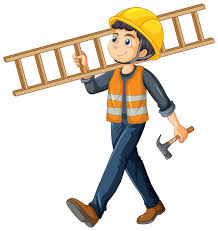


 349,500 Offered Certificates
349,500 Offered Certificates
 24/7 Online Training
24/7 Online Training
 Money Back Guarantee
Money Back Guarantee
 Fully Accredited Courses
Fully Accredited Courses

Created at: 12-11-2024 13:04
Manual handling tasks are a core component of many workplaces in Ireland. With large amounts of the workforce engaged in these activities, it is essential to understand the manual handling legislation that governs safe practices. This guide will help you navigate the manual handling laws in Ireland while highlighting the importance of manual handling training legislation for ensuring compliance and safety.
Manual handling refers to any activity that involves lifting, pushing, pulling, carrying, or moving loads. It is a common requirement across various industries, including construction, healthcare, and warehousing. Due to its physical nature, improper manual handling can lead to severe injuries. Thus, understanding manual handling safety legislation is vital for both employers and employees.
Manual handling legislation aims to provide a safe work environment by setting out the legal requirements for employers to reduce the risk of injury. It encompasses various laws, regulations, and guidelines, including:
The manual handling training legislation Ireland mandates that employees who are involved in manual handling tasks receive adequate training. This training should cover:
Employers should ensure that training programs reflect these legal requirements and regularly update their staff on any changes in the manual handling compliance legislation.
To maintain compliance with manual handling legislation, employers in cities like Dublin, Cork, and Galway should consider the following steps:
Many businesses often hesitate to invest in training due to perceived high costs. However, the consequences of failing to comply with manual handling legal requirements can lead to financial loss due to employee injuries and potential fines. Our training programs are designed to be both affordable and comprehensive, ensuring that you meet all necessary manual handling standards and legislation.
Compliance with manual handling legislation is not just a legal requirement; it is a critical component of workplace safety. By understanding and implementing effective manual handling training that aligns with legislative requirements, employers can significantly reduce the risk of injury in the workplace. For more information on affordable manual handling training programs tailored to your business needs, contact us at [email protected] or visit our website at Irish Manual Handling.